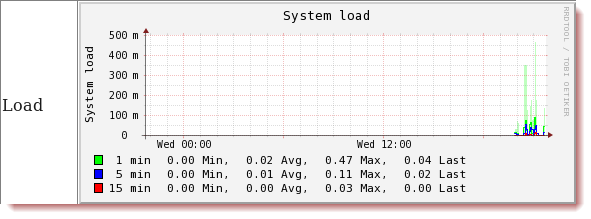| Weight | 2 |
| Description | Candidates should be able to monitor resource usage to predict future resource needs. |
Key Knowledge Areas:
- Use collectd to monitor IT infrastructure usage.
- Predict capacity break point of a configuration.
- Observe growth rate of capacity usage.
- Graph the trend of capacity usage.
- Awareness of monitoring solutions such as Nagios, MRTG and Cacti
The following is a partial list of the used files, terms and utilities:
- diagnose
- predict growth
- resource exhaustion
Collectd is a small C based collection tool. Being based on C there is not the overhead of having additional scripting engines to run the collection; it is natively run in C making a good solution for embedded devices as well as conventional Linux Servers and Desktops, Being able to collect and analyze performance data over a period of time affording us the ability to create effective baselines and compare current performance to the baselines. In this way we can determine how the load on the server varies over time and we can then predict when new resources will be required to support company growth.A graphical report from collectd could look something like this:
In the graphic the collected data is just for a few hours shortly after collectd has been installed; already though we can see how the server load has varied. This shows the output from the load plugin illustarting the server load, many other plugins exist such as the memory, interface and cpu plugins , for example. If you run apache httpd server a plugin and be download to monitor the web server performance.

